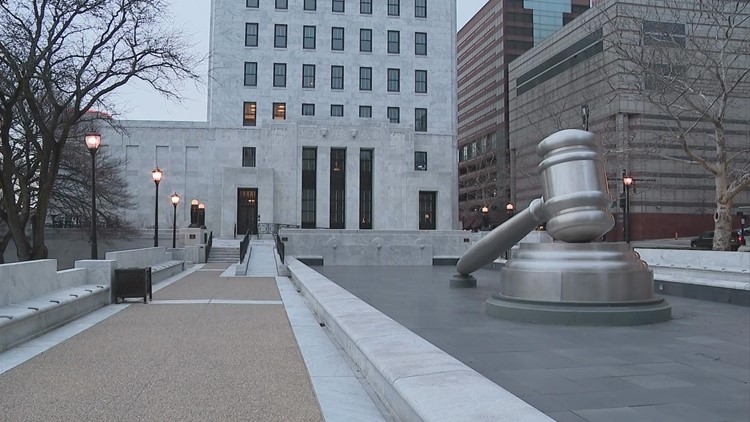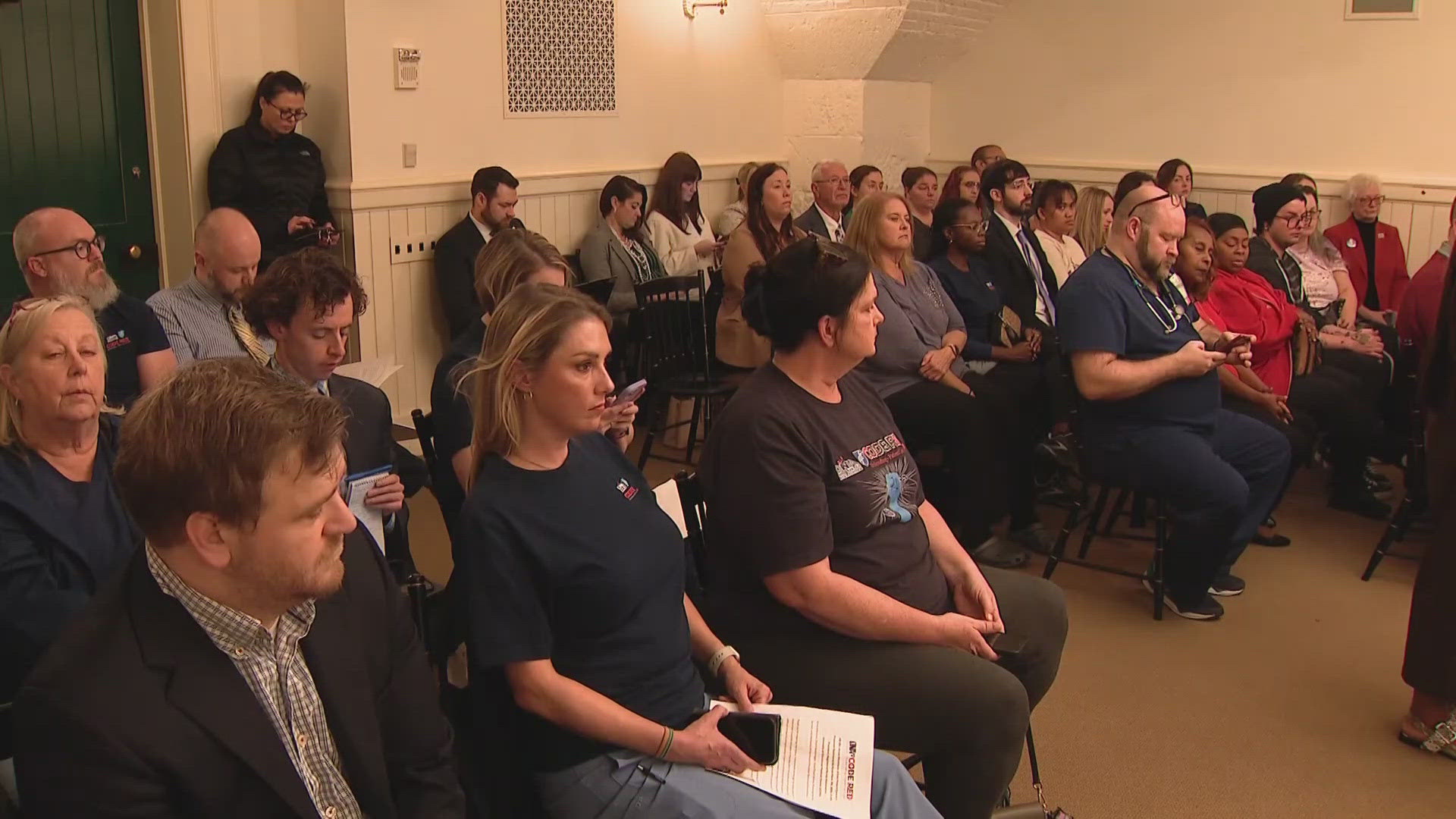COLUMBUS, Ohio — Ohio’s Republican leaders want to call a time out in the battle over state legislative maps — at least until after this fall’s general elections — and asked the state’s high court on Monday to pause the legal back-and-forth with voting rights and Democratic groups.
By a bipartisan 4-3 majority, the Ohio Supreme Court has so far tossed out four sets of legislative maps that were drawn by the Republican-dominated Ohio Redistricting Commission. The judges found those maps to be unfairly gerrymandered. The dispute over redrawing the maps resulted in races for state representative and senator being left off Ohio's May 3 primary ballot.
On Monday, Republicans asked the court to accept the third set of maps for just this year, and not order any more map-drawing until after the Nov. 8 elections. Ohio has limped nearly halfway into the year without a firm date for its Statehouse primaries. The process was supposed to be done in September, 2021.
The Redistricting Commission voted last week to resubmit its third iteration of the maps to the state Supreme Court, where groups including the Ohio Organizing Collaborative and the ACLU persist in arguing that the boundaries are still unconstitutional and that the commissioners are in contempt.
In his brief on behalf of Republican Gov. Mike DeWine, who is a member of the mapmaking commission, Attorney General Dave Yost argued that the petitioning parties can’t simply regurgitate their earlier arguments against the third plan, although those arguments were previously successful. That’s because, he wrote, “time and circumstances have materially changed.”
The two Democrats on the seven-member Redistricting Commission said the Republican majority's decision to approve an already-invalidated plan “discarded the Ohio Constitution and the will of Ohio’s citizens, who voted overwhelmingly to end partisan gerrymandering, and discarded the rule of the law.”
If accepted, the third set of maps would create a 54-45 Republican majority in the Ohio House and an 18-15 Republican majority in the Ohio Senate, by the GOP's calculations. Democrats have questioned that math, contending many of the districts counted as Democratic are actually too closely divided to fall into their column. Few districts tallied as Republican, on the other hand, are winnable by Democrats.
Most recently, the state Supreme Court justices ordered a new, presumably fifth plan to be resubmitted by last Friday. But, bolstered by a federal court's promise to impose the third set of maps if a solution can't be worked out by May 28, commissioners opted just to send the third plan back.
Republican Secretary of State Frank LaRose, the state's elections chief and also a commission member, has told both the public and the court that the round-three maps — though previously invalidated — are the only ones that can logistically be used at this point without disrupting the fall general election.
“The Commission cannot do the impossible,” he told the court in a filing Monday. “It cannot change the past. It cannot turn back the hands of time. It cannot make the legislature change statutory deadlines, the date of the election, or the law. And it cannot will a lawfully compliant legislative primary to go forward based on hope and effort, alone. Instead, the Commission must look at the calendar and do its best to move an orderly election forward, even if that means using a one term, stop-gap plan.”
LaRose and the association representing election officials in Ohio's 88 counties, who administer elections, want legislative primaries to be held Aug. 2.



